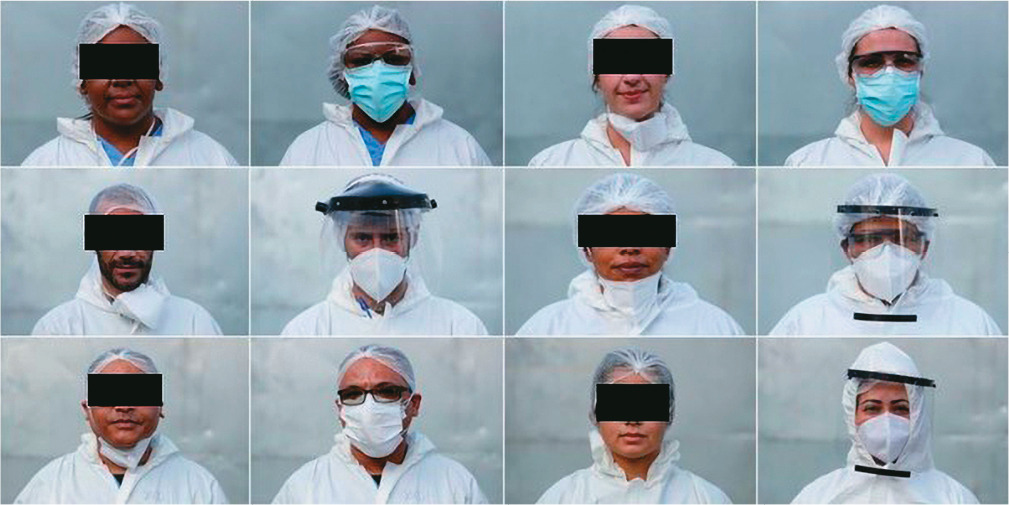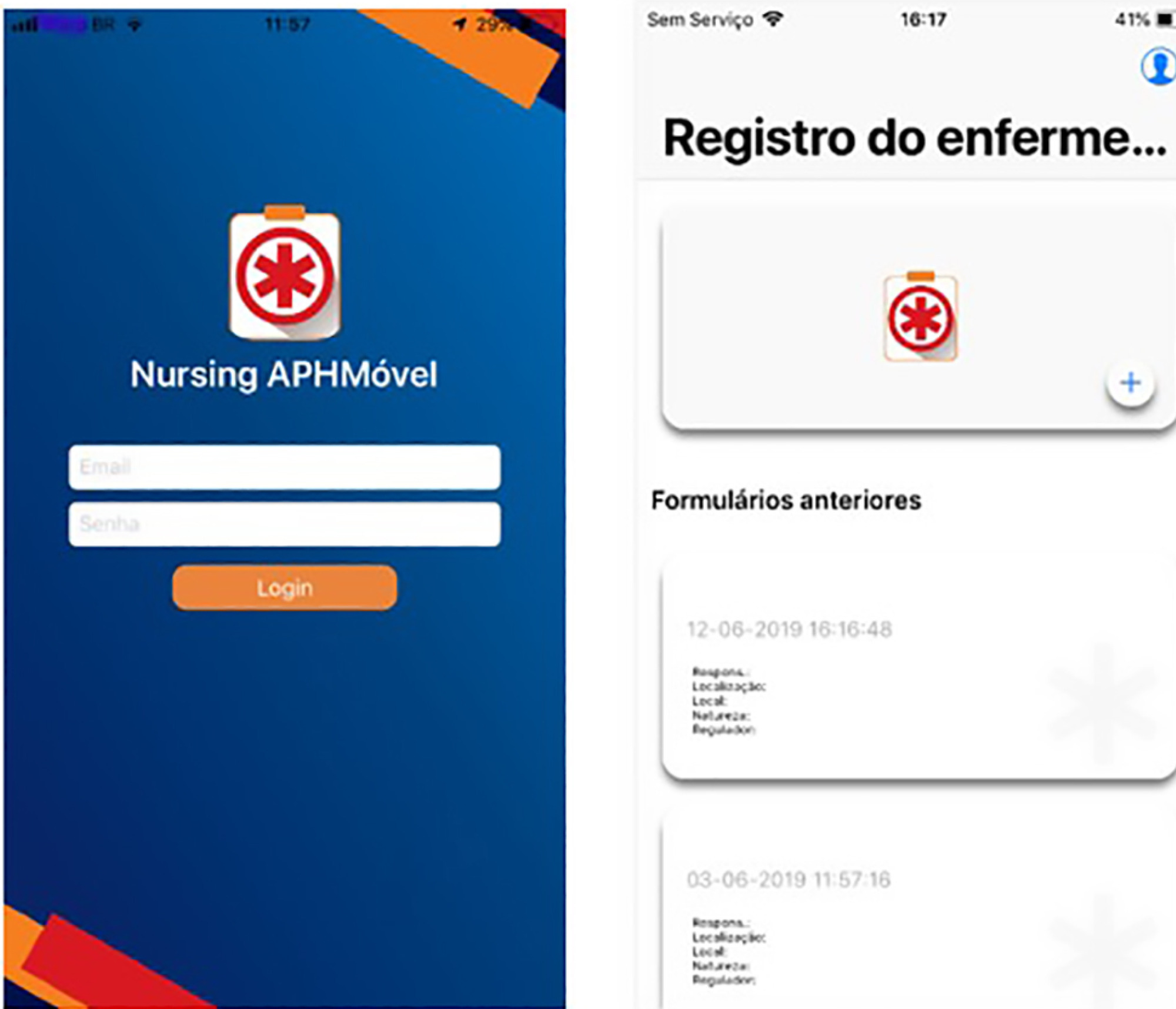-
Learning needs of Nursing students in technical vocational education
Revista Brasileira de Enfermagem. 2015;68(1):20-25
Abstract
Learning needs of Nursing students in technical vocational education
Revista Brasileira de Enfermagem. 2015;68(1):20-25
DOI 10.1590/0034-7167.2015680103i
Views0See moreObjective:
identify learning needs of students of Technical Vocational Education (TVE) in Nursing. Qualitative study conducted in a city of São Paulo state.
Method:
the subjects were students, teachers and coordinators of TVE and students of the bachelor degree who have had contact with TVE. Data collection was performed by questionnaire socioeconomic and cultural circles about the learning needs. For data analysis we used the content analysis.
Results:
it was found that students have difficulties contents not related to nursing as portuguese and mathematics, as well as introductory courses in the course of TVE which possibly may interfere negatively in learning specific content of nursing and the quality of health care.
Conclusion:
it is necessary to rethink the content taught and ways to teach from basic education, as well as the training of teachers who now works in the TVE.
-
Serious game e-Baby: nursing students’ perception on learning about preterm newborn clinical assessment
Revista Brasileira de Enfermagem. 2015;68(1):13-19
Abstract
Serious game e-Baby: nursing students’ perception on learning about preterm newborn clinical assessment
Revista Brasileira de Enfermagem. 2015;68(1):13-19
DOI 10.1590/0034-7167.2015680102i
Views0See moreObjective:
to evaluate students opinion regarding e-Baby educational technology.
Methodology:
exploratory descriptive study in which participated a sample composed of 14 nursing Portuguese students that used e-Baby digital educational technology in an extracurricular course. To achieve the aim of the study, the data collection was realized through an opinion instrument in Likert scale including the possibility of commentaries by students. Is was also collected data of participants’ characterization.
Results:
students made very satisfactory evaluations regarding the game e-Baby, varying since usability acceptation through suggestions of expansion of the game to other nursing themes.
Conclusion:
serious game e-Baby can be considered a didactic innovation and motivator tool of learning. Besides, it demonstrates have adequate interface in design and educative function aspects, evocating intense interaction between user and computational tool.

-
EDITORIAL01-01-2015
Challenges beyond the scientific knowledge production
Revista Brasileira de Enfermagem. 2015;68(1):7-8
Abstract
EDITORIALChallenges beyond the scientific knowledge production
Revista Brasileira de Enfermagem. 2015;68(1):7-8
DOI 10.1590/0034-7167.2015680101p
Views0For several decades, innumerous appeals and reflections on how to build the nursing science and achieve visibility in the scientific world led researchers to make efforts to produce knowledge that contributed to the well-being of people, improving their quality of life, relieving their suffering and transforming the reality in which we live. In addition to […]See more
-
ORIGINAL ARTICLE09-24-2022
Nurses’ performance in palliative care: spiritual care in the light of Theory of Human Caring
Revista Brasileira de Enfermagem. 2022;75(1):e20210029
Abstract
ORIGINAL ARTICLENurses’ performance in palliative care: spiritual care in the light of Theory of Human Caring
Revista Brasileira de Enfermagem. 2022;75(1):e20210029
DOI 10.1590/0034-7167-2021-0029
Views1See moreABSTRACT
Objectives:
to analyze nurses’ role in assisting patients in palliative care, with emphasis on the spiritual dimension, in the light of Theory of Human Caring.
Methods:
this is an exploratory, qualitative study, carried out in a hospital in João Pessoa, Paraíba, between August and December 2019, with 10 nurses. For data collection, semi-structured interviews were used. For analysis, we opted for content analysis.
Results:
the spiritual dimension of care is contemplated by several religious and spiritual practices. These are respected and encouraged by nurses, although there is difficulty in providing care for the spiritual dimension.
Final Considerations:
nurses have attitudes consistent with Jean Watson’s Theory and apply the Caritas Process elements during assistance to patients’ spiritual dimension in palliative care.
-
ERRATUM01-15-2024
ERRATUM
Revista Brasileira de Enfermagem. 2024;77(1):e2024n1e01
Abstract
ERRATUMERRATUM
Revista Brasileira de Enfermagem. 2024;77(1):e2024n1e01
DOI 10.1590/0034-7167.20247701e01
Views1In the article “The ethics of nursing care for transgender people”, with DOI number: , published in Revista Brasileira de Enfermagem, 2023;76(Suppl 3):e20220797, in authorship:Where it read:[…]See more -
ORIGINAL ARTICLE04-14-2023
Guide for Systematization of Care and Nursing Process: educational technology for professional practice
Revista Brasileira de Enfermagem. 2023;76:e20210975
Abstract
ORIGINAL ARTICLEGuide for Systematization of Care and Nursing Process: educational technology for professional practice
Revista Brasileira de Enfermagem. 2023;76:e20210975
DOI 10.1590/0034-7167-2021-0975
Views1ABSTRACT
Objective:
to elaborate and validate the content of a digital guide educational technology on Systematization of Nursing Care and Nursing Process.
Methods:
applied research of technological development, developed between 2020 and 2021, in three steps. First, a scoping review was carried out to elaborate the content. In the second step, the content was validated with 46 nurse judges selected for convenience. The minimum criterion of agreement among judges was 80%. The third step consisted of content organization and layout.
Results:
the guide content was elaborated from the Federal Nursing Council legislation, scientific articles and textbooks. Content was considered appropriate, relevant and organized by judges.
Final considerations:
the digital guide is an alternative that can contribute to the NP execution and implementation, supporting the planning and implementation of actions for quality of care.
Keywords:Educational TechnologyNursing ProcessNursing RecordsProfessional PracticeStandardized Nursing TerminologySee more
-
ORIGINAL ARTICLE03-27-2023
Adaptation and validation of an adult patient classification instrument with emphasis on the family dimension
Revista Brasileira de Enfermagem. 2023;76(2):e20220530
Abstract
ORIGINAL ARTICLEAdaptation and validation of an adult patient classification instrument with emphasis on the family dimension
Revista Brasileira de Enfermagem. 2023;76(2):e20220530
DOI 10.1590/0034-7167-2022-0530
Views1ABSTRACT
Objectives:
to adapt and validate an instrument for classifying adult patients that emphasizes the family support network in the demand for nursing care.
Methods:
methodological study, carried out in three phases: adaptation of an instrument considering the reality of adult patients; content validation with seven experts and assessment of measurement properties (construct validity and internal consistency) with 781 hospitalized patients.
Results:
in content validation, the indicators reached the values established for the Content Validity Index (0.85-1.00). In the confirmatory factor analysis, the 11 indicators were distributed in three domains and presented average variance extracted and factor loading greater than 0.5. Composite reliability was greater than 0.7.
Conclusions:
the present study adapted and made available, with evidence of validity and reliability, an instrument for classifying adult patients that considers the family support network in the demand for nursing care.
Keywords:Factor AnalysisFamilyHospital Organization and AdministrationPatient-Centered CareValidation StudiesSee more
-
ORIGINAL ARTICLE10-17-2022
Ethics, COVID-19 and nursing vulnerability: analysis of photographs released by the media
Revista Brasileira de Enfermagem. 2022;75:e20210960
Abstract
ORIGINAL ARTICLEEthics, COVID-19 and nursing vulnerability: analysis of photographs released by the media
Revista Brasileira de Enfermagem. 2022;75:e20210960
DOI 10.1590/0034-7167-2021-0960
Views1See moreABSTRACT
Objectives:
to analyze nursing vulnerability through photos released by the media amidst the COVID-19 pandemic.
Methods:
a documentary study, with a qualitative approach. The object of analysis were photographic images selected between January 2020 and March 2021, published by the main news portals in countries such as Brazil, the United States, France, Spain, England and Germany. Thematic categorical analysis was the method of analysis used.
Results:
we found 74 photographs that portrayed nursing professionals in different work situations. It was possible to identify stigma and social devaluation about this class’s representation and professional attribution. Moreover, we found an underrepresentation of black professionals in Brazilian portals and the man as the prominent figure in the spaces of claims.
Final Considerations:
the photographs represented an important tool for the social analysis of nursing vulnerability, favoring the unveiling of situations that may go unnoticed by nursing and society.

-
TECHNOLOGICAL INNOVATION09-01-2021
Nursing APHMÓVEL: mobile application to register the nursing process in prehospital emergency care
Revista Brasileira de Enfermagem. 2021;74:e20201029
Abstract
TECHNOLOGICAL INNOVATIONNursing APHMÓVEL: mobile application to register the nursing process in prehospital emergency care
Revista Brasileira de Enfermagem. 2021;74:e20201029
DOI 10.1590/0034-7167-2020-1029
Views1ABSTRACT
Objectives:
to develop an application for a mobile device for the registration of the Nursing Process by nurses of the Mobile Emergency Care Service.
Methods:
applied research with technology development based on software engineering and Apple’s Human Interface Guidelines. It had the support of an application developer and a designer. The proposal was built in four steps (scope definition, planning, prototype creation and development).
Results:
the application “Nursing APHMóvel” allows to record the steps of the Nursing Process, such as history, nursing diagnoses, outcomes and interventions with the possibility of storing the data and/or file in printable format. The technological innovation has location features, scales with automatic sum of items, touchscreen, and offline operation.
Conclusions:
it was possible to develop the application with the potential for computerized documentation of the Nursing Process by nurses working in the Mobile Emergency Care Service.
Keywords:Electronic Health RecordsInformation TechnologyMobile ApplicationsNursing ProcessPrehospital CareSee more
-
Evolution of nursing teaching in the use of education technology: a scoping review
Revista Brasileira de Enfermagem. 2021;74:e20200422
Abstract
Evolution of nursing teaching in the use of education technology: a scoping review
Revista Brasileira de Enfermagem. 2021;74:e20200422
DOI 10.1590/0034-7167-2020-0422
Views1See moreABSTRACT
Objective:
To identify and map the technological tools of information and communication to support the teaching learning process in Nursing teaching courses.
Methods:
This is a scoping review whose search was carried out in seven databases and in grey literature. After an initial analysis of the selection, 88 texts were read integrally, and 29 made up the final sample.
Results:
Virtual learning environment and object, simulation, hypermedia, and software or cellphone applications were the tools the nursing professors used the most. Studies highlight that the application of technology was important in the teaching-learning process, since it encouraged teaching based on safe care, motivating and developing abilities/competences, supported on significant, effective, flexible, and autonomous learning.
Conclusion:
The contribution of the technology for nursing formation stands out, but it should be highlighted that its employment must be critical, reflective, based on pedagogical theories and developed by trained professors.

-
ORIGINAL ARTICLE06-14-2024
Validity of the TBApp mobile application for self-care management for people with tuberculosis
Revista Brasileira de Enfermagem. 2024;77(2):e20230195
Abstract
ORIGINAL ARTICLEValidity of the TBApp mobile application for self-care management for people with tuberculosis
Revista Brasileira de Enfermagem. 2024;77(2):e20230195
DOI 10.1590/0034-7167-2023-0195
Views1See moreABSTRACT
Objectives:
to describe the validity process of the TBApp mobile application for self-care management for people with tuberculosis linked to Primary Health Care.
Methods:
methodological research developed with ten expert judges, carried out virtually. The application was assessed in relation to content and technology quality in seven domains (objectivity; structure and appearance; relevance; functionality; reliability; usability; and efficiency), using an instrument with a Likert scale.
Results:
TBApp was considered valid, relevant, functional, reliable and effective by expert judges. The objectives, structure and presentation and relevance domains presented an overall Content Validity Index of 0.93, and the functionality, reliability, usability and efficiency domains presented characteristics and sub-characteristics values greater than 0.80.
Conclusions:
TBApp is a creative and innovative tool that can be used by people with TB and disseminated in the scientific community.
Search
Search in:
Nuvem de Tags
Aged (144) Atenção Primária à Saúde (239) COVID-19 (104) Cuidados de Enfermagem (269) Educação em Enfermagem (151) Educação em Saúde (139) Enfermagem (930) Estudos de Validação (131) Health Education (144) Idoso (208) Mental Health (149) Nursing (987) Nursing Care (306) Patient Safety (151) Primary Health Care (284) Qualidade de Vida (104) Quality of Life (106) Saúde Mental (145) Segurança do Paciente (150) Validation Studies (108)



